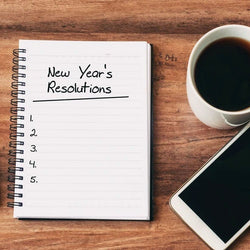Is Anxiety Robbing You of Peace?
Foolproof Ways to Stop That Thief
Foolproof ways to stop that thief

by Pam Vredevelt
Sep 26, 2016
"Anxiety is a thin stream of fear trickling through the mind. If encouraged, it cuts a channel into which all other thoughts are drained."
-Arthur Somers Roche
Mom anxiety
We’ve all been there. Those times when unpredictable events happen, we’re jolted silly and leap to erroneous conclusions. Anxiety overrides logic, our brains short-circuit, and we assume the worst is right around the corner.
You’ve probably heard anxiety creep through the cracks from other moms:
Article Continues Below Advertisement
- "I’m in a really good place right now, but I keep wondering when the other shoe is going to drop."
- "My baby is healthy – knock on wood – I sure hope it lasts."
- "Things are going well but I don’t want to enjoy life too much and set myself up for disappointment."
Anxiety is apprehension about upcoming events, not necessarily based on solid facts or sound reason. It can subtly sneak in, steal our peace, and block us from the good times life affords. [i]
The truth is, anxiety is a prevalent problem in today’s fast-paced, high-expectation driven, multi-tasking, information overloaded, stressed-out culture. In the twenty-five+ years I’ve been a therapist, I’ve treated more moms suffering with anxiety than any other problem. This parallels national statistics.

One out of four Americans are diagnosed with an anxiety disorder during his or her lifetime. One-third of the general population experienced a panic attack in the last year.[ii]
Article Continues Below Advertisement
My interest in this disease is far more than professional. I’ve personally wrestled with it, particularly as a mom who loves her kids and wants what is best for them.
Anxiety comes in many forms. Think of it on a continuum from mild to severe.
Mild anxiety can appear as a simple case of butterflies before your baby’s developmental check-up with the Pediatrician. In this case it can be positive, triggering just enough adrenaline for keen concentration and sharp focus. But if it takes a stronger hold and leads to racing thoughts, dry mouth, rapid heartbeat and brain fog, it’s a real nuisance. It’s hard to track with the doctor when all this noisy commotion is going on inside. The more severe end of the anxiety spectrum dishes out nasty symptoms that makes life downright miserable. (Click here to see WebMD's Anxiety & Panic Disorder Guide)
After two traumatic incidents in my adult life, anxiety was more than a pest. It was like a noose around my neck squeezing the life out of me. I’ll talk more about that in future posts as we continue this conversation about ways to overcome anxiety.
Article Continues Below Advertisement
How can I break free from anxiety?
It’s impossible to live completely anxiety-free due to the protective fight/flight mechanism hard wired in us that alerts us to danger. But, you do get to determine how you respond to your emotions. You’re more resilient than you think.
Next time you’re flooded with anxious thoughts that convince you it’s the end of the world, grab one of the tools from this series and use it. It’s my privilege to pass on to you discoveries that I’ve made on my own quest for peace. Take advantage of these time-tested, clinically proven, and spiritually sound strategies that really work. Here’s one for starters.
The 4 P’s
PAUSE. Deliberately slow down. Make a mind shift away from your automatic negative thoughts (ANTS) and feelings. Observe what is actually happening, and what you are actually feeling. Pausing can help you more effectively manage your emotions.[iii]
PONDER. Consider what might be behind your anxiety. Is it strictly related to the present situation? Anxiety can stem from past incidents and emotional memories filed away years ago. While the emotion may have helped against real danger then, it might be just getting in your way now. With the advent of neuroimaging devices, brain science shows that rethinking feelings and reinterpreting the meaning of an emotional trigger reduces negative emotion far better than when we suppress and inhibit the emotion. The more awareness you have about what you are thinking and feeling, the more power you have to change it.[iv] Check out this app if you want to increase your awareness of the triggers that rob your peace.[v]
Article Continues Below Advertisement
PRAY. Talk with God about your anxiety. Download it out of your head and into God’s hands. Ask for peace and help to understand what is troubling you. Notice insights and images that come to mind. Research shows that prayer can reduce anxiety.[vi] God already knows all the ins and outs of the situations that nag at the perimeters of your peace. Nothing you are facing catches God by surprise.[vii]
PLAN. Anxiety jump-starts the imagination into overdrive. One of the best ways to prevent anxiety is to make an action plan. Just knowing that you have a way to address a problem brings relief. Forming a plan doesn’t have to be complicated or time consuming. If you’re anxious about your baby’s health or behavior, call a friend or a doctor. Use their input to plan your next step. If you’re stressed out about finances, talk to a financial advisor who can suggest actions you can take to move forward, out from under this stress.
Years ago I saw a clever acrostic for fear: False Evidence Appearing Real.

When we are anxious, we tend to jump to conclusions and make decisions based on partial truth, rather than complete and accurate evidence. Brain science tells us that anxiety decreases activity in the area of the brain that relates to conscious thinking and planning, the part of the brain that is necessary for making good decisions. At the same time, it increases activity in the areas of the brain that initiate the body’s fight/flight/freeze response.[viii]
When anxiety is on the rise, use the 4-P’s. Pause, ponder, pray, and plan. It can protect you from poor judgement, silly snap decisions, and help restore your peace.
"True peace cannot be kept by force. It can only be achieved by understanding."
-Albert Einstein
[i] http://c.merriam-webster.com/medlineplus/anxiety
[ii] Martin Anthony, Understanding Anxiety: Effects on Mental and Physical Health, Oregon Convention Center Symposium, May 21, 2001, Portland Oregon.
[iii] Download study Neurobiology of Mindfulness and Emotion.pdf:
[iv] P.R. Goldin, K.McRae, W. Ramel, and J.J. Gross, The neural bases of emotional regulation: reappraisal and suppression of negative emotion, Biological Psychiatry, vol. 63, no.6, pp. 577-586, 2008.
[v] https://www.anxietybc.com/resources/mindshift-app
[vi] https://www.nursingtimes.net/prayer-can-reduce-levels-of-depression-and-anxiety-in-patients-according-to-research/1989756.article
[vii] If you don’t know what you’re doing, pray to the Father. He loves to help. You’ll get his help, and won’t be condescended to when you ask for it. Ask boldly, believingly, without a second thought. (James 1:6, The Msg)
[viii] http://www.jneurosci.org/content/36/11/3322.abstract
Pam Vredevelt
Pam Vredevelt is a Professional Counselor and Coach, Best-selling author of Empty Arms, and the Empty Arms Journal. Jessie Vredevelt Schultz is a business consultant and transformation coach. They co-lead Healing Your Empty Arms: A transformation experience after the loss of your baby or child, for emotional healing, personal growth, and spiritual renewal.














